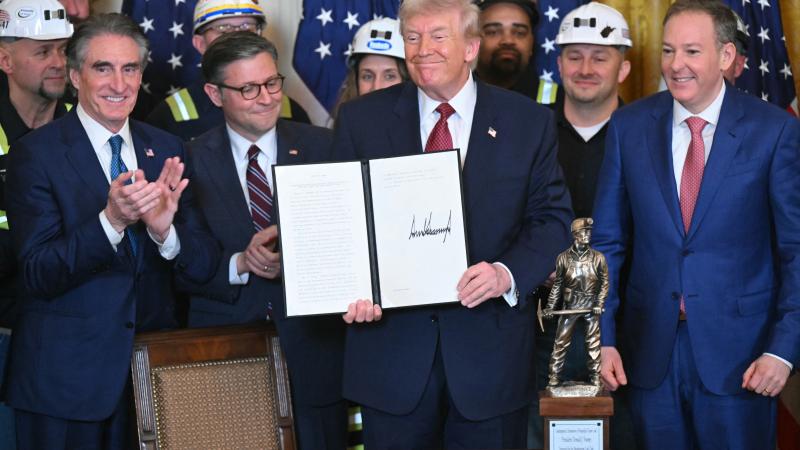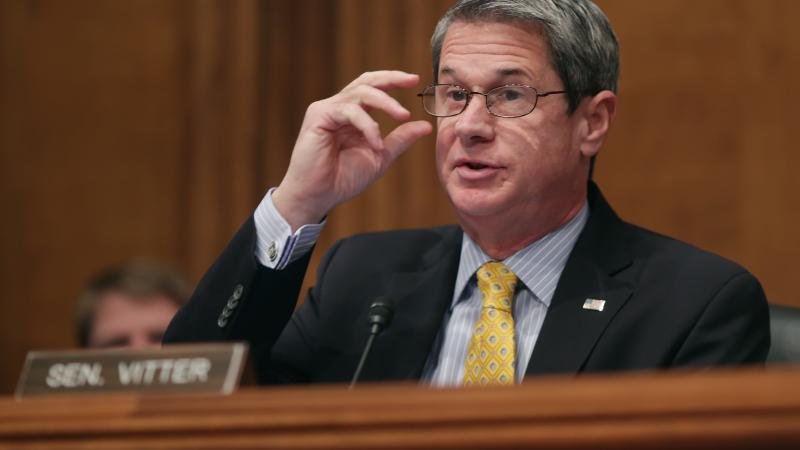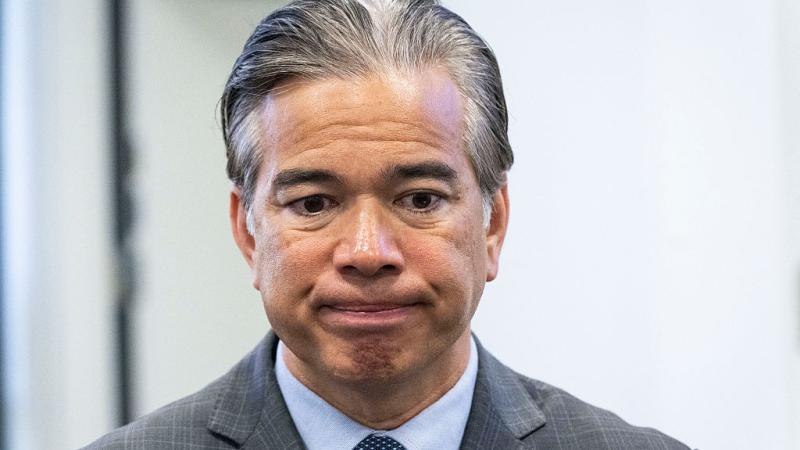Offshore wind opponents come from deep blue states, but Trump offers hope they’ll finally be heard
Blue states' common ground with Trump: While many coastal residents opposed to offshore wind may not be fans of Trump, they’re optimistic that the new administration will finally give them a seat at the table.
Shortly after taking office in 2021, President Joe Biden set a goal of developing 30 gigawatts of offshore wind by 2030.
Along the coasts, grassroots, community-based organizations concerned about the impacts of offshore wind development sprang up to express their opposition to the plan. They say they found their concerns ignored and dismissed as the federal government pushed full-steam-ahead with Biden’s goals.
President-elect Donald Trump stated repeatedly during his campaign that he would end Biden’s offshore wind vision. Now offshore wind opponents in Democratic strongholds of the East and West coasts, while they may not be fans of Trump, they’re hopeful the new administration will finally give them a seat at the table.
Small target in a big ocean
In February 2024, the first phase of Vineyard Wind, a 62-turbine project 15 miles south of Nantucket and Martha’s Vineyard became the first large-scale offshore wind project to deliver power to the grid. Amy DiSibio, board member for ACK For Whales, told Just the News that people on Nantucket had, prior to this year, been supportive of Biden’s offshore wind agenda.
ACK for Whales is a nonpartisan nonprofit representing Nantucket community members who are concerned about the negative impacts of offshore wind development off the coast of the island. DiSibio said there are a lot of misperceptions about Nantucket.
“People think this is an island filled with a bunch of rich people. It’s actually a very economically diverse community. People don’t recognize that, especially the year-round population, these people work two and three jobs to make ends meet. It’s very expensive living 30 miles out to sea,” DiSibio said.
She said about a year ago, people on the island started seeing giant offshore wind turbines covering their ocean views. Concerns were growing about impacts of the industry to the viewshed and marine wildlife, DiSibio said, but when a blade broke off one of the turbines in July and scattered shards of debris across New England shores, the tide of public opinion turned against the industry.
“People are like, ‘Are you kidding?’ This is expected to happen on a regular basis. This is an environmental disaster. People are still picking up stuff on the beach. This is a small target in a big ocean. So imagine what's still out there,” DiSibio said.
Continuing education
While the impacts have hit the island hard, the election outcomes suggest Trump’s vows against offshore wind weren’t a selling point for the state or the island. Massachusetts residents voted 61% in favor of Democratic candidate Kamala Harris, and in Nantucket nearly 67% of votes went for Harris.
DiSibio said that as a 501(c)3, ACK for Whales is limited in what it can do, in terms of lobbying. She said that the organization will proceed now with what it’s been doing — educating the public and elected officials on the issue. She said they’ve got people in Congress who have been sympathetic to the issue, such as New Jersey Reps. Jeff Van Drew and Chris Smith, as well as Maryland Rep. Andy Harris in Maryland — all Republicans — who are listening.
“There are people in Congress who have concerns. They've got concerns around the environment, economic concerns to what this does to not just coastal communities, but how this will impact the whole state. Concerns around this means for rate payers, concerns around search and rescue, for the Coast Guard, national security. There are many, many questions that are out there,” DiSibio said.
She’s hoping there will be more questions not only about the impacts, but also if they’re worth it. Environmental impact statements for offshore wind projects, which are required as part of the federal permitting process, note that the projects will have “no measurable influence on climate change.”
“Are we wasting our time on an intermittent, unreliable, expensive, environmentally destructive form of energy? What are we doing?” DiSibio said.
Staying optimistic
The West Coast currently has no projects under construction. Since the continental shelf drops off closer to shore, floating wind projects were being leased and planned. These are much larger turbines that are chained to the ocean floor, which can be a mile below the turbine platform. Even though the West Coast has so far been spared, opposition there has already begun.
With the federal government and media cheering on offshore wind development, Mandy Davis recognized that there is power in numbers. She is president of the National Offshore-wind Opposition Alliance (NOOA), which is a national coalition bringing together various disparate groups sharing concerns about offshore wind.
As with ACK for Whales, NOOA is nonpartisan, but Davis said the organization will be reaching out to the incoming administration to voice their concerns. Even though Democrats are as entrenched on the West Coast as they are in New England, Davis said that they’re happy to see a president who’s surrounding himself with political appointees who won’t be as supportive of offshore wind.
“We're trying to stay optimistic that he will actually keep his word. He does have numerous things that he can do to throw major monkey wrenches in the works,” Davis said. She pointed out that even wind energy investor Warren Buffett has said the investments make no sense without the subsidies. If that money dries up, Davis said, it would kill any offshore wind development.
Since the production tax credits are baked into the Inflation Reduction Act, it would take an act of Congress to undo this revenue stream for offshore wind developers. Davis said, with Trump’s cabinet nominations, there’s a good chance the proliferation of offshore wind will come to a halt.
“Deb Haaland is not going to be in there. That's for darn sure. So that could really affect everything, because BOEM [Bureau of Ocean Energy Management] has been a bear to deal with,” Davis said.
An opportunity for federal agencies to speak the truth
Offshore wind opponents have struggled to get the Department of Interior, which is over BOEM, to take a serious look at the impacts of offshore wind on whales. A particular sticking point is the agencies’ refusal to look at the cumulative impacts of all the projects. The environmental impact statements look at impacts one project at a time, but with marine mammals that migrate thousands of miles up and down the coasts, multiple projects could have an overall impact on the entire population.
While some Washington bureaucrats have been committed to Biden’s agenda, DiSibio said she believes that there’s a lot more concern for offshore wind impacts among agency employees than has been seen publicly.
“It seems like there's been a mandate to get this stuff done at all costs, even if it means you have to compromise your integrity,” DiSibio said.
She points to a letter whose lead signatory was Sean Hayes, chief of the protected species branch at NOAA’s Northeast Fisheries Science Center (NEFSC). The letter, first reported by the New Bedford Light in 2022, expressed concerns that the offshore installations could harm the endangered North Atlantic right whales.
She says there’s likely more discussions of these concerns within the agencies, and with the new administration, they might become more public. As the national conversation changes, she said, environmental organizations, state governments and local governments might be more willing to voice their concerns.
“I am hopeful that all of these people who I feel have really been put in a tough position because of all of the craziness, that perhaps now they'll have an opportunity to really speak the truth. I really hope that we can have some more really honest discussions about the trade off here,” DiSibio said.
To keep the issue visible for the incoming administration, NOOA’s members are planning protests in multiple communities on Jan. 18 to raise awareness of their concerns.
“We're doing it two days before the inauguration. It’s to nationally punctuate the fact that there are a bunch of people that are opposing offshore wind. And we are expecting the new administration to address it,” Davis said.
The Facts Inside Our Reporter's Notebook
Links
- set a goal of developing 30 gigawatts
- concerns ignored and dismissed
- Vineyard Wind
- first large-scale offshore wind project
- ACK For Whales
- scattered debris across New England shores
- expected to happen on a regular basis
- picking up stuff on the beach
- voted 61% in favor
- no measurable influence on climate change
- floating wind projects
- National Offshore-wind Opposition Alliance
- national coalition bringing together
- investments make no sense without the subsidies
- committed to Bidenâs agenda
- first reported by the New Bedford Light















